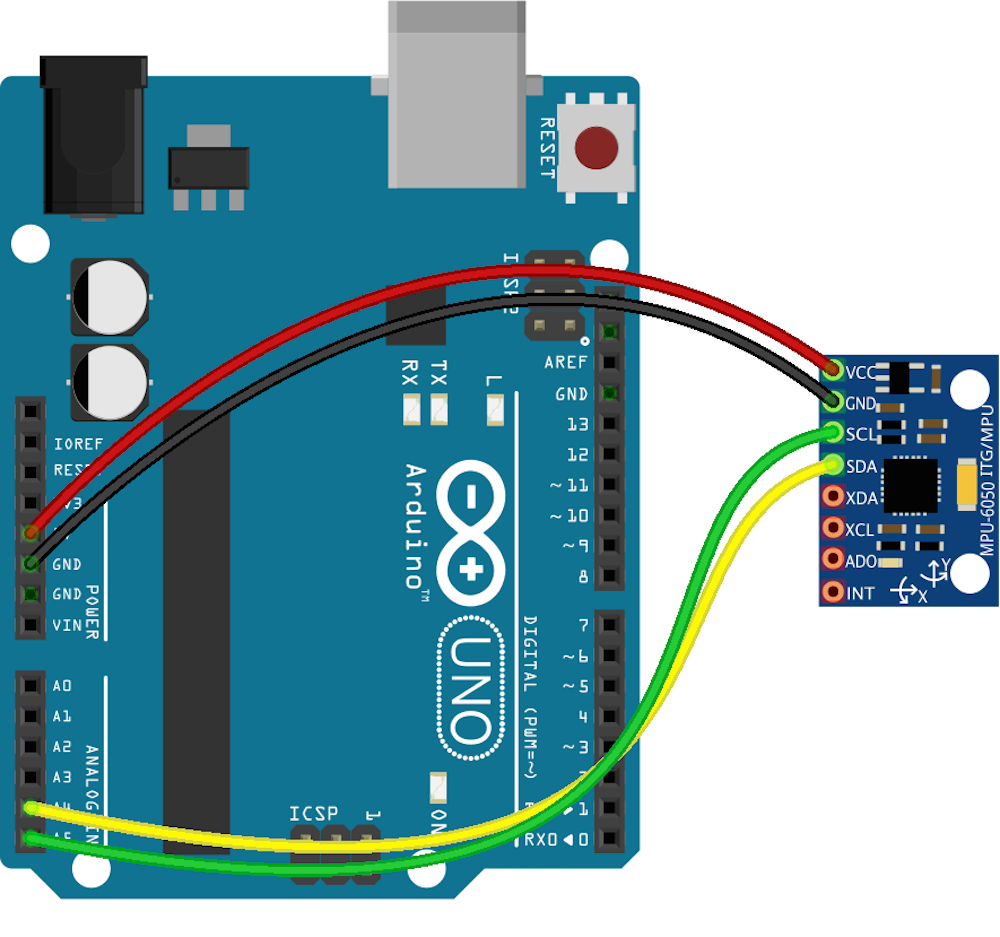-
Notifications
You must be signed in to change notification settings - Fork 1.8k
The IMU class constructs objects that represent a single IMU module attached to the physical board. An IMU is an Inertial Measurement Unit. IMUs come in all shapes and DOFs (Degrees of Freedom). They are often made up of several components like Accelerometers, Gyros, Temperature Sensors, and Magnetometers.
Johnny-Five currently supports one kind of IMU:
This list will continue to be updated as more devices are confirmed.
-
General Options
Property Type Value(s) Description Default Required controller string “MPU6050” The Name of the controller to use “MPU6050” no freq Number ms The delay in reporting data from this device 100 no -
MPU6050 Options(
controller: "MPU6050")Property Type Value(s) Description Default Required address Number 8-bit value The address of the component (can be switched via ADO pin) 0x68 no
Some of these properties may or may not exist depending on whether the IMU supports it.
{
accelerometer: An instance of `Accelerometer` class. READONLY
gyro: An instance of `Gyro` class. READONLY
temperature: An instance of `Temperature` class. READONLY
}
// Create an MPU-6050 IMU object:
//
// - attach SDA and SCL to the I2C pins on your board (A4 and A5 for the Uno)
// - specify the MPU6050 controller
new five.IMU({
controller: "MPU6050",
address: 0x68, // optional
freq: 100 // optional
});
var five = require("johnny-five");
var board = new five.Board();
board.on("ready", function() {
var accelerometer = new five.IMU({
controller: "MPU6050"
});
accelerometer.on("data", function(err, data) {
console.log("Accelerometer: %d, %d, %d", this.accelerometer.x, this.accelerometer.z, this.accelerometer.z);
console.log("Gyro: %d, %d, %d", this.gyro.x, this.gyro.z, this.gyro.z);
console.log("Temperature: %d", this.temperature.celsius);
});
});The IMU does not have an explicit API. Refer to the individual components for their APIs
-
data The "data" event is fired as frequently as the user defined
freqwill allow in milliseconds. -
change The "change" event is fired whenever a corresponding "change" is fired from a component.